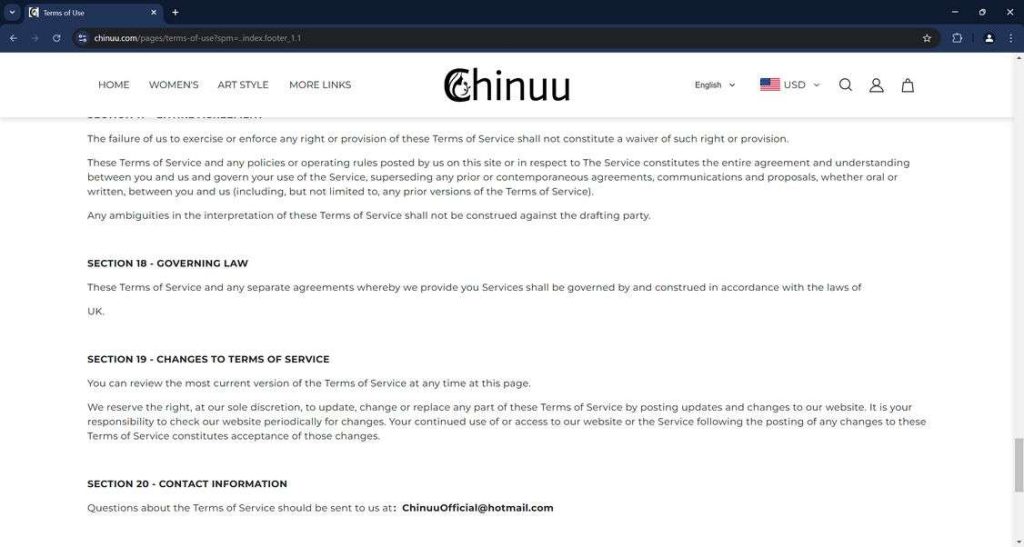Key Points:
- Daeasum.com is a scam online store that tricks buyers with low prices.
- Shoppers risk receiving fake products, wrong items, or nothing at all.
- The website collects sensitive personal and financial data.
- Recognizing scam websites can help prevent fraud.
Introduction Daeasum.com may seem like a great place to find bargains, but don’t be fooled. This site is designed to scam unsuspecting shoppers by offering unrealistically low prices on various products. If you’re thinking about placing an order, read this first to understand how their scheme works and how you can protect yourself.
How the Scam Works
1. Social Media Ads: Scammers behind Daeasum.com promote the website aggressively through social media ads. These ads often feature catchy phrases like “Warehouse Sale” or “Going Out of Business” and use stolen product images to make the deals look legitimate.
2. Fake Online Storefront: Clicking on the ad takes you to a website designed to mimic a real online store. Everything from product descriptions to customer reviews is fabricated to create an illusion of trustworthiness. The site may display countdown timers and limited stock messages to create urgency.
3. Bogus Order Confirmations: After placing an order, customers receive a confirmation email, which appears normal. However, this is where communication often ends. Most buyers never receive their orders, and those who do report getting incorrect or low-quality items.
4. No Customer Support: Once they have your money, scammers cut off all communication. Attempts to contact customer support go unanswered, and there is no way to request a refund or return an item.
5. Repeated Scam Cycle: After accumulating enough negative reviews, the scammers shut down the website and launch a new one under a different name. This cycle allows them to continuously deceive new victims.
Red Flags Indicating a Scam Daeasum.com displays several signs of being a fraudulent website. Here are some warning signals to watch out for:
- Lack of Contact Information: The website provides no phone number, physical address, or live chat support.
- Copied Legal Pages: Terms of service and privacy policies are often plagiarized from legitimate websites, with little relevance to their operations.
- Unrealistic Discounts: Deals offering up to 90% off are common. No legitimate business can sustain such steep discounts.
- Anonymous Ownership: There’s no information about the company or its owners, making it impossible to verify its legitimacy.
- Stolen Content: Product images and descriptions are taken from other well-known retailers.
- No Social Media Presence: Unlike genuine businesses, scam sites do not maintain active social media profiles for customer engagement.
How to Spot Scam Websites Being aware of common tactics used by scammers can help you avoid falling victim. Here are a few tips:
- Check the Domain Name: Scam sites often use odd spellings or extra words in their domain names.
- Look for Real Contact Information: Legitimate businesses provide clear contact details, including a phone number and physical address.
- Be Wary of Huge Discounts: If a deal seems too good to be true, it probably is.
- Search for Reviews: Look up the website on trusted review platforms. Lack of reviews or overwhelmingly negative feedback is a major red flag.
- Verify Site Security: Ensure the website uses HTTPS encryption and offers secure payment methods.
Recognizing Social Media Scams Scammers heavily rely on social media ads to attract victims. Here’s how to identify fraudulent ads on popular platforms:
- Facebook:
- Be cautious of ads offering extreme discounts.
- Check the page creation date. Scam pages are usually new.
- Look for language errors or inconsistent formatting in the ad.
- Instagram:
- Beware of accounts with few posts and followers.
- If no real customers are tagged in posts, it’s likely a scam.
- Check the site’s URL for security indicators like HTTPS.
- TikTok:
- Fake stores often post videos with countdown offers.
- No verified badge indicates the account hasn’t been authenticated by TikTok.
- Read the comment section for warnings from other users.
What to Do If You Fell for the Scam If you’ve already made a purchase on Daeasum.com, take the following steps:
- Contact Your Bank: Inform your bank about the fraudulent transaction. Request a chargeback if possible.
- Document Everything: Save order confirmations, emails, and any communication as evidence.
- Report the Fraud: File a complaint with the Federal Trade Commission (FTC) and the Internet Crime Complaint Center (IC3).
- Leave Reviews: Share your experience on review platforms to warn others.
- Monitor Your Credit: Keep an eye on your credit reports for any suspicious activity.
- Reset Passwords: If you used the same password on other sites, change it immediately.
Avoiding Online Shopping Scams To stay safe while shopping online, always follow these best practices:
- Stick to well-known, reputable websites.
- Use credit cards for online purchases, as they offer better fraud protection.
- Avoid clicking on ads that seem too good to be true.
- Research unfamiliar websites before making a purchase.
- Look for secure payment methods and clear return policies.
Conclusion Daeasum.com is just one example of many scam websites that prey on unsuspecting shoppers. By learning to recognize the warning signs and being cautious with online purchases, you can protect yourself from falling victim to these schemes. Always trust your instincts—if something feels off, it’s better to be safe than sorry.




